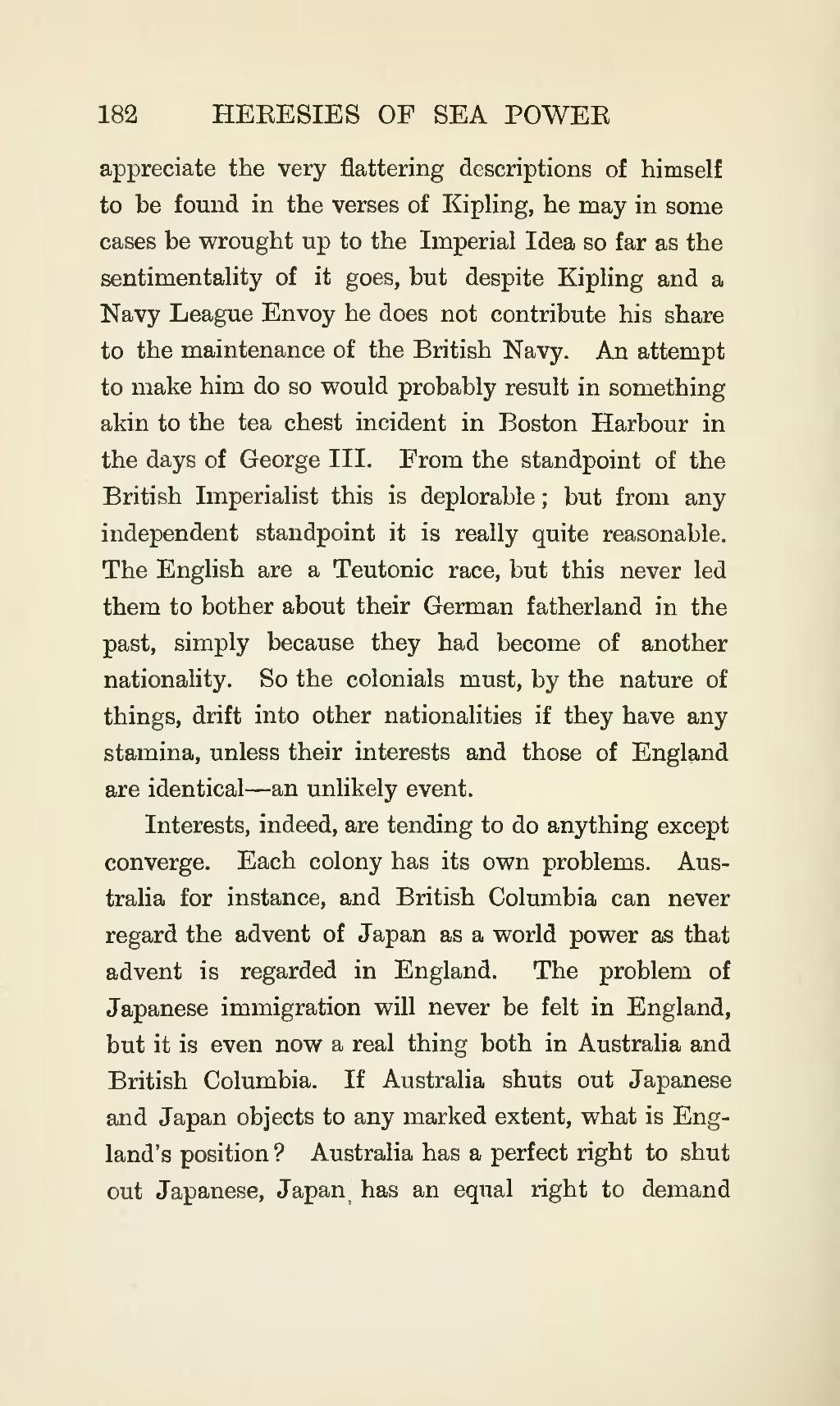appreciate the very flattering descriptions of himself to be found in the verses of Kipling, he may in some cases be wrought up to the Imperial Idea so far as the sentimentality of it goes, but despite Kipling and a Navy League Envoy he does not contribute his share to the maintenance of the British Navy. An attempt to make him do so would probably result in something akin to the tea chest incident in Boston Harbour in the days of George III. From the standpoint of the British Imperialist this is deplorable; but from any independent standpoint it is really quite reasonable. The English are a Teutonic race, but this never led them to bother about their German fatherland in the past, simply because they had become of another nationality. So the colonials must, by the nature of things, drift into other nationalities if they have any stamina, unless their interests and those of England are identical—an unlikely event.
Interests, indeed, are tending to do anything except converge. Each colony has its own problems. Australia for instance, and British Columbia can never regard the advent of Japan as a world power as that advent is regarded in England. The problem of Japanese immigration will never be felt in England, but it is even now a real thing both in Australia and British Columbia. If Australia shuts out Japanese and Japan objects to any marked extent, what is England's position? Australia has a perfect right to shut out Japanese, Japan has an equal right to demand
